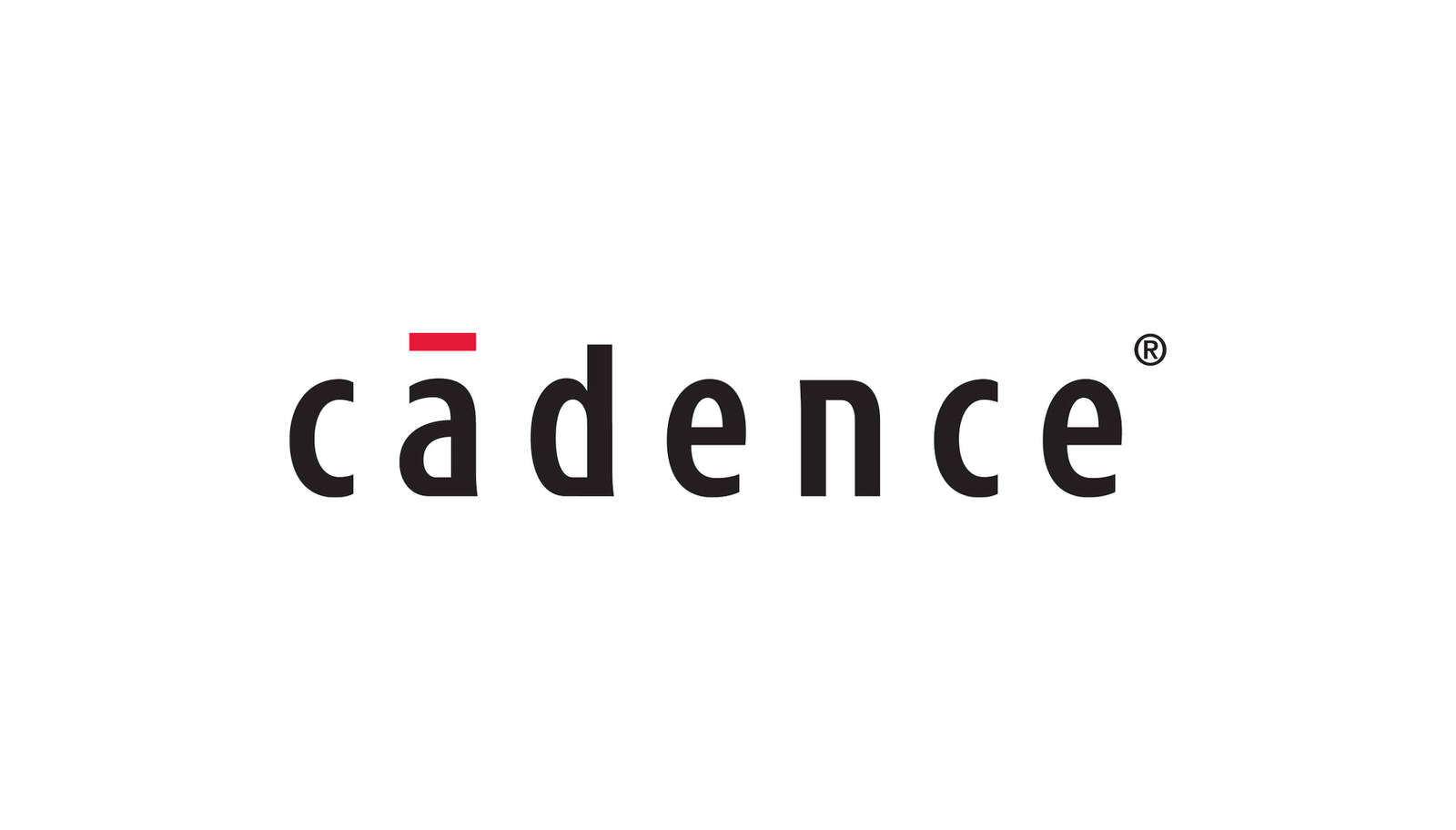David Rosenberg discusses how the 3 D's (Deleveraging, Deflation, and Demographics) are hurting markets, and where investors can go for positive returns, with Wealthtrack's Consuelo Mack.
Here is the full transcript:
CONSUELO MACK: This week on WealthTrack, the influential economist whose projections have been right on target. Financial Thought Leader David Rosenberg shows how the 3 D’s of deleveraging, deflation and demographics are hurting economies and markets and where investors can go for positive returns, next on Consuelo Mack WealthTrack.
Hello and welcome to this edition of WealthTrack. I’m Consuelo Mack. This week, we are sitting down for an in-depth interview with one of the handful of prognosticators who has gotten it right going into and through the rolling global financial crisis we are experiencing to this day. He is Financial Thought Leader David Rosenberg, chief economist and strategist at Toronto-based wealth management firm Gluskin Sheff. Dave returned to his native Canada in 2009 after spending many years as Chief North American Economist at Merrill Lynch, where Institutional Investor magazine placed him on their coveted “All American All Star Team” from 2005-2008.
Rosenberg took on the bullish Wall Street herd as early as 2004, when he started warning about the developing housing and credit bubble which, as he predicted throughout, would wreak havoc on the financial system and many world economies. Well he hit the nail on the head again last year, forecasting the global economy would slow and that treasury bond yields would fall- another homerun. In his influential and widely read daily “Breakfast With Dave” reports, he ranges across the globe covering everything from Europe and how “it is rather incredible that this rolling crisis is now going on 2-1/2 years and policy makers have yet to find a viable solution”; to emerging markets and “why the once mighty BRIC currencies are depreciating of late at their fastest pace since the 1998 Asian crisis”; to the financial markets and “how the “pattern of the past three years is unmistakable as each spring, the equity market corrected as stimulus measures wore off, to only then prompt more incursions by the fall.”
What other patterns are unmistakable to Dave Rosenberg and why did he write in a recent report that “the future is brighter than you think”? I asked him all of the above and more, starting with what he thinks the most important patterns for the economy and markets.
DAVID ROSENBERG: I think the primary trend is still one of deleveraging. It hasn’t really changed much from the last time that the two of us spoke; it’s become much more global in nature. So it started off in the U.S. four or five years ago, in the American mortgage market, the housing market, consumer loans in general, but now we’re seeing how it’s morphed into the survival of the welfare state and all the debt finance to prop up these peripheral countries in Europe, and even now there’s questions about whether China is going to have a hard or soft landing because of a perceived property bubble there.
So we’re still in this deleveraging cycle, still dealing with the impact of too much debt relative to the size of the global economy, and this is what’s creating all this market angst and instability that we’re still living with; notwithstanding the fact that the economy, the U.S. economy is three years in a recovery, we’re still stuck in a very slow growth mode, but recurring financial market instability at the same time.
CONSUELO MACK: So is there any way of knowing whether the second half is going to be worse, better, or the same as the first half? Because, I mean, I’m thinking of my audience out there, and myself included, and saying, “I don't want to live through another three or four years like this.” So what’s it going to look like, do you think the second half?
DAVID ROSENBERG: Well, I’m going to sound like a classic economist here and say it’s going to be somewhere in between, and this is what I mean. Are we going to get another gut wrenching, you know, 7% decline in GDP, and lose another 8 million jobs? I don't think we’re going to go through anything close to what we endured in ’08 and ’09.
CONSUELO MACK: And to back-to-back kind of 50% decline in the stock market?
DAVID ROSENBERG: It’s not going to be that bad. But then again, you have to take a look at the contours of the recovery. I actually think the recovery tells you a lot more than the actual gut-wrenching recession did, because normally when you do this with the economy, you do that.
CONSUELO MACK: You get to a V, right?
DAVID ROSENBERG: Well, even in that 1933-’36 period, you got a huge recovery, much bigger than we had this time around, and this time around we had basically a checkmark of left-hand person, that’s what we had. It was not a V-shaped recovery; it was a very meager recovery, especially when you consider everything that the government threw at this thing. Consider the Fed took rates to 0 in December of ’08, they’ve tripled the size of their balance sheet $3 trillion. We’ve had, what, $4 trillion, four years of trillion-dollar deficits, and...
CONSUELO MACK: The fiscal stimulus…
DAVID ROSENBERG: ...and more foreclosure moratoria. We’ve tried everything. So we’ve had modest economic growth, but very unacceptable. And now what’s happening is the Fed is left now with all these uncreative tools. Like Ben Bernanke certainly believes that he can do more but, you know, in Economics 101 you learn about the law of diminishing returns, and it’s basically that you end up getting less and less and less incremental impact from the same policies over time. And so that was the same with QE1, QE2, with the LTRO that we had out of Europe. We were getting just a smaller incremental impact on the economy with each individual policy proposal.
CONSUELO MACK: So therefore three years into a quote, unquote “recovery”, so are we on the cusp of another recession?
DAVID ROSENBERG: Cusp or precipice, I don't know if I’m quite there yet. The economy is extremely fragile. The underlying trend in the economy is barely 2%, it’s barely 2%. So when you have a trade shock that can wipe out 2 percentage points of growth, you’re left with 0. Now, maybe that’s not a recession in the classical sense because we’re not actually going in reverse, but the unemployment rate is going up in a no-growth environment. And then you talk about this so-called fiscal drag, this fiscal cliff that we’re going to see next year- it’s because, you know, we’re probably not in as bad as shape as the Europeans, but here in America, we’ve kicked the can down the road a lot in terms of the Bush tax cuts getting extended, in terms of payroll tax relief, extended unemployment insurance benefits, all these provisions expire December 31st. So just by the government taking back the parking permit from everybody, we have a drag on the economy next year from fiscal restraint, 4 percentage points of GDP, percentage points.
CONSUELO MACK: Which we don’t have. So listening to you, Dave, quite honestly, I do want to kind of bury my head in the sand and I’m thinking to myself, you know, that I want to be in incredibly safe assets, that this is no time to put risk on. And yet, you know, one of the things that you follow, as well, is investor sentiment and the fact that there is a growing despair out there that people are very frightened and worried. And as we know traditionally, that’s in fact, the time when it’s actually best to buy risk.
DAVID ROSENBERG: I mean, there are always opportunities. In a fat-tail world, you’ve got to be very cognizant of the risks. So it’s as much not just focusing on the gross returns, but we have to - and this is what we’re doing every day at my shop at Gluskin Sheff- is we are assessing the risk, identifying it, managing it, and pricing it. And frankly it’s not about, you know, being risk averse. You know, people think that somehow, you know, when you talk about risk all the time you’re risk averse. It’s always important to make sure as an investor that you’re getting paid to take on the risk, that you’re not paying...
CONSUELO MACK: Right, so it’s price is really...
DAVID ROSENBERG: Right. Like, for example, I would say, you know, the high-yield bond market right now is actually, I would argue, priced for a bad economic outcome. You want to buy the assets that you think have already discounted. What’s embedded, what’s the story in this particular asset class, what’s it telling you? So I’m taking a look at the high-yield market right now. I think it’s actually very attractive. We have a core portfolio of high-yield bonds, and the reason I say that is because ultimately when you’re buying corporate bonds, you’re staking a claim in the corporate balance sheet. And the one thing that’s not changed, despite the fact that we’ve got all this angst overseas, the fact that the U.S. economy has hit stall speed, corporate default rates are barely more than 2%, you’ve got corporate balance sheets in great shape whether you look at debt equity ratios, or interest coverage ratios- the fact that treasurers companies both Canada in the U.S. have locked in their maturity schedules, 80% of corporate debt is locked in. In some sense, the corporate sector is in better financial shape than the government sector is. So I like corporate bonds.
CONSUELO MACK: One of the things that you’ve told clients is that reliance and deriving a stable income stream while preserving capital is paramount right now. So in these uncertain times, stability of income stream is one of your major investment focuses.
DAVID ROSENBERG: Right. And it comes down to what my overall theme is called: the macro and market outlook in 3D. So I’m talking about the 3Ds. What are the 3Ds? Well, they’re deflation, there’s demographics, and there is deleveraging and we talked about the deleveraging. There’s also this demographic overlay because the first of the Boomers are 55 going on 56, that’s the median age. The first of the Boomers are in their mid-60s, and so they control the wealth. They’re in a different part of their investment life cycle right now, and so accumulating cash flows as opposed to relying on strictly capital appreciation for the Boomer class, the life cycles as far as investments are concerned, that’s altered. And we’re seeing it in our own business in terms of what our clients are telling us, how they would like their money managed.
So you’ve got the demographics talking about the deleveraging, but the deflation. And so people will say to me, “Well, I thought in a deflation, cash is king in a deflation.” And the answer is well, you know, historically that’s true. That’s the ultimate capital preservation- cash is king in deflationary environment except when interest rates are 0. And so then it’s not cash is king, cash flow is king. So it’s imperative. It’s not just about preservation of capital, which of course in the fat-tail world, which is the deleveraging world, capital preservation is key; but you have to overlay that with preservation of cash flows. That’s why MLPs have been so popular.
CONSUELO MACK: Right, Master Limited Partnerships.
DAVID ROSENBERG: That’s why muni funds. That’s right, and that’s why REITs, and that’s why dividend growth, dividend yield have been so popular now. People come back and say to me, “But these things look so expensive.” Well, they look expensive because that’s what’s in demand, you know? And it doesn’t mean because it’s expensive you don’t want to buy it. You know, the perfume I bought is expensive, yeah, but is it good? Yes. Well, okay, that’s why it’s expensive because it’s a good thing to buy. These are good strategies right now, and that’s why their prices have been up as much as they have.
CONSUELO MACK: So as far as this pattern that we’ve seen for the past three years in the stock market, and where it rallies until the spring and then it basically sells off. That has been very disheartening for investors. Are we locked into that for the foreseeable future?
DAVID ROSENBERG: I think what we have is this battle going on, got this battle. We have the secular forces of deflation coming from all this deleveraging and the deleveraging, of course, takes demand out of the global economy, you’ve got the deflation, and then you’ve got these governments fighting it hard. So the secular forces of deflation in the market place, and then the tug-of-war as governments come in and reflate- whether it’s China, or whether it’s the U.S. government, or whether it’s the ECB. And so what this does is creates tremendous volatility, tremendous volatility.
But once again, the question is for an investor, what do I do with this volatility? How can I sleep at night? And that’s why in conjunction with say income equity over here, and corporate bonds over there, there should be a slice in the portfolio in hedge funds that really hedge long-short strategies that can actually be...
CONSUELO MACK: And they exist? There really are hedge funds that really hedge?
DAVID ROSENBERG: Well, you know, hedge funds have been around for 50 years. They got a bad name in the last cycle because they weren’t hedge funds, they were leverage long-only funds. But there are firms out there that are either hedge funds. You know, Gluskin Sheff is not a hedge fund, but 20% of our business is managing these long-short strategies, and it’s actually a very effective way to be nimble in the market place when you get these dislocations.
It’s really just taking sectors and companies that you think are bad businesses, are going to cut their dividends, and you put a short position on them, and you couple that with long position of the companies that you think are going to grow the dividends over time.
CONSUELO MACK: So let’s talk about earnings, because I know that you’ve said that the E in the price earnings ratio, the earnings, they are problematical. So what is your outlook for corporate earnings? And again, what does that mean for the stock market?
DAVID ROSENBERG: Well, corporate earnings right now have hit an inflection point, and it’s not just that they’re slowing, they’re actually starting to contract. Earnings are actually, after a three-year period of steady increases off those lows in 2009, corporate profits are actually now starting to decline outright.
CONSUELO MACK: And you’re talking about the S&P 500?
DAVID ROSENBERG: S&P 500 and even bigger picture. When we got the GDP numbers a couple of weeks ago- the GDP numbers give you corporate earnings for all of America, not just for the large-cap companies- and corporate earnings are coming down. And my sense is that the earnings estimates by the analysts on Wall Street is still far too high. Earnings estimates are important. I’m noticing that fewer companies are giving guidance. Fewer companies are giving guidance. What’s that telling you? That corporate CEOs, very similarly, they have a very clouded crystal ball right now. Fewer companies are giving guidance, and then the ones that are giving guidance, for every one that’s saying something positive about their business, two to three are saying something negative about what the outlook is. And on top of that, the estimates are starting to come down. I don't think they’ve come down enough.
What does it mean for the stock market? You know, I think that if we were to go into a recession, normally the market corrects 20%. I’m not going to say that we’re going into a recession, but my sense is that the stock market is going to remain at best in the range that it’s been in for the past several months. We have to respect the range, but we’re going to be still in for a lot of volatility, which is why I was saying before that hedge funds, they really hedged, totally appropriate. On top of that, you have to be nimble and as tactical as you possibly can be, but if you’re going to ask me do I think that there’s more downside pressure given the risks out there, and especially to corporate earnings, the answer is yes. I think at this stage, without getting into, you know, what’s your call on where we can get to, I think the balance of risks is at that the market goes down over the near term and then goes up. And if it does, I think it will be a great buying opportunity down the road.
CONSUELO MACK: Let me ask you just about another macro issue, which is what about Europe? And you’ve said, you wrote recently that, you know, you’re two and a half years in, you know, these rolling problems keep coming up in Europe, and there are no viable solutions.
DAVID ROSENBERG: Well, I mean, there are solutions. I don't know how viable they are. I think it’s a matter of just looking at it realistically. The European Union was working just fine. You know, the whole notion that we were going to try and avoid another World War, another European war at all costs. I don't think that we needed to have a currency union to achieve that. You can’t have a monetary union and not have the fiscal union, and an integrated banking union. You can’t have it.
CONSUELO MACK: So realistically, I mean, are the 17 countries going to sacrifice their sovereignty?
DAVID ROSENBERG: Hardly likely. I had breakfast recently with a CEO of a major Canadian bank, and he told me that they have a Eurozone breakup committee. And he said this is happening around the world. Any major multinational corporation, any business that is doing business in Europe has one of these Eurozone breakup committees, not unlike the pre-Y2K committees that you had in the late 1990s. So you can bet your bottom Euro that if that’s what they’re doing, the Eurocrats in Brussels are trying to come up with some sort of... you talk about viable, what’s a viable exit strategy? Unless the ECB steps up en masse and rapidly expands its balance sheet, and starts buying the bonds of Italy and Spain en masse at auction, you know, that’s pretty radical. I don't know what the quick fix is. So I think that the end game will ultimately be that the Eurozone breaks up.
CONSUELO MACK: One of your investment themes that we’ve talked about basically has been capital preservation and income orientation, as well, and one of the themes that you and I have talked about in the past is what you call “SIRP”, which is Safety and Income at a Reasonable Price. Are you looking for SIRP investments? Is that still a major strategy theme?
DAVID ROSENBERG: I would say that SIRP has its thumbprints across all the portfolios we’re running at Gluskin Sheff. In fact, what’s interesting is that we, for years, since 2001 we’re running this one particular strategy that’s called “premium income”, which it’s a hybrid, it’s got dividends, and it could have REITs, it could have preferred, convertible bonds; it’s really a portfolio aimed at distribution, a portfolio aimed at generating monthly cash flows for our clients.
CONSUELO MACK: And that’s Safety and Income at a Reasonable Price.
DAVID ROSENBERG: Right. Well, when we say... for example, when I talked about corporate bonds, and we’re talking about “safety” in quotes; I mean, safety, it’s relative. When talking about corporate bonds, it’s because of the quality of the balance sheets are very strong. Because that’s inherently when you’re buying corporate bonds, it’s mostly about default risk. You want to minimize that strong balance sheets. When I talk about on the equity side, we’re talking about running portfolios that have a low beta, which means low correlations with the overall market direction.
CONSUELO MACK: Right. The overall stock market direction.
DAVID ROSENBERG: The overall stock market direction, so we’re talking about, so it’s not just about, you know, does this company have a consistent history of paying off dividends, and we like the business. It’s also how does it move relative to the overall market? So in a period like this where it’s very tumultuous, and where the market is more prone to go down than up, you want to run your portfolios with very low betas. And so that’s the safety part, that’s the “S” part of the SIRP.
CONSUELO MACK: And the low correlations of the markets, in a highly correlated market, which is what we’ve been in for the last several years, so what are the areas that aren’t correlated that have low betas?
DAVID ROSENBERG: Well, for example, one of the themes that we liked has been the consumer frugality theme. So it means consignment stores, it means private label, it means do-it-yourselfers. I mean, for example, you could actually say, wow, because a Home Depot, does it fall under that category as an example. I’m not going to go sell my home, I’m not going to move, I’m underwater in my mortgage, but you know what? I still want to have a fun life, so instead of buying a new home, I’ll spruce up my existing home. And so home repair, a do-it-yourselfer, and so you can find...
CONSUELO MACK: So can you match a name or two to, you know, the frugality theme? So, for instance, frugality, what’s a--
DAVID ROSENBERG: Well, I’ll tell you one area where we have been long, and it’s worked out well has been the dollar stores. And they’ve been phenomenal investments, and by the way, it’s not just because low income households shop there, you’d find... and what the studies are showing is that a greater share of middle income households are actually going to dollar stores. And that’s an area where we have focused on in terms of our consumer exposure.
CONSUELO MACK: Let me run down a couple of the other investment themes, noncyclical. So give me, you know, what’s the theory behind the noncyclical emphasis? And give me an idea.
DAVID ROSENBERG: Well, it’s all about generating stable cash flows. In an uncertain environment, what do you want in an uncertain environment? You want stability. What about utilities, regulated utilities? Regulated utilities. They have regulated pricing power. What about telecom? And it might not just be the stock, you might want to buy the bonds of these companies. Once again, if you have a single A telecom company that’s giving you a triple B yield, you know, I will be happy to take that all day long in terms of looking at the risk and reward. So telecom, utilities, consumer staples, these are the areas that will tend to outperform in the environment that I’m describing right now.
CONSUELO MACK: And one other category that you had was hard assets. So what are we talking about when you’re emphasizing hard assets?
DAVID ROSENBERG: Resources are not a bad place to be. They’re already corrected quite a bit, so resources, whether it’s raw food, or whether it’s, I would say energy, which is corrected quite a bit. ]If you’re a long-term investor, these are complements. They’re not going to generate a yield for you, but they are what you want to own, things you can see, touch and feel in a very uncertain world, and these things have cheapened up quite a bit, as a hedge against the income part of the portfolio.
CONSUELO MACK: So one question is One Investment for long-term to diversify portfolio, what is it that you would recommend that we all own some of?
DAVID ROSENBERG: Well, I’m still a big advocate of corporate bonds. As I said, I think balance sheets are in great shape, default rates are low, there is too much default risk priced in, and so I would say I would focus on, let’s try and generate equity-like returns without taking on the equity risk. And there is a part of the capital structure that can accomplish that, and it’s called “corporate credit”. That is still to me a happy medium between 0 percent treasury bills and going out in the riskiest part of the equity structure. So corporate bonds to me are a solid investment.
CONSUELO MACK: And Dave Rosenberg, you know, you have a reputation of being a permabear, which is not fair, because you were also known as a permabull in the ‘80s and the ‘90s, and in a recent report you said” the future is brighter than you think.” Why when others are despairing are you getting enthusiastic about the future?
DAVID ROSENBERG: Well, I’m not going to say I’m getting enthusiastic about the future. What I am willing to do is put out some checkmarks as to what can cause me to turn more optimistic. And so I see a flicker of light, and it’s realization that politics will lead the financial markets, which will lead the economy, and what leads the politics is the grassroots level, and so what happened last month, for example, I think in Wisconsin with the recall in San Jose, San Diego, and there seems to be this growing realization at the grassroots level that we have to get our public sector balance sheets in better shape; that these underfunded liabilities have to come under control. So we’re starting to see more of a groundswell of support.
What I’m thinking about is how things will change politically on November the 6th, understanding, coming from Canada; Canada went through what Europe is going through right now. Canada is going through what the U.S. was going through back in the early 1990s. You could never have predicted that Canada ten years later would be the poster child for fiscal integrity globally. But it took tremendous political courage.
CONSUELO MACK: We’ll see what happens, and that’s what you’re going to be watching, Dave Rosenberg.
DAVID ROSENBERG: I’m more than willing to reclaim my status of a permabull that I had in the ‘80s and ‘90s if I see those clouds part come November.
CONSUELO MACK: All right, Dave Rosenberg, so great to have you here from Canada, Gluskin Sheff. It always a pleasure to have you on WealthTrack.
DAVID ROSENBERG: Thank you.
CONSUELO MACK: At the conclusion of every WealthTrack, we try to leave you with one suggestion to help you build and protect your wealth over the long term. This week’s reiterates one we just talked about- Dave Rosenberg’s long-time income generating strategies which is S.I.R.P.: safety and income at a reasonable price. So this week’s Action Point is: seek safety and income at a reasonable price, or S.I.R.P.!
Everything we know about the financial markets right now points to ongoing volatility and headwinds for stock price appreciation. Among the areas Rosenberg recommends where you can find reliable dividend growth and dividend yields are: Canadian and U.S. preferred stock shares, which are senior to common stocks; energy infrastructure investments, such as natural gas pipelines; and utilities. All S.I.R.P. vehicles.
And that concludes this edition of WealthTrack. I hope you can join us next week. We are going to sit down with an investment professional who combines two disciplines: overall investment strategy and actual fund management. BlackRock consultant Bob Doll will join us to discuss macro trends and micro strategies. Until then, to see this program again, or others and read my Action Points and our guests’ One Investment recommendations, please visit our website, wealthtrack.com Have a great weekend and make the week ahead a productive one.










